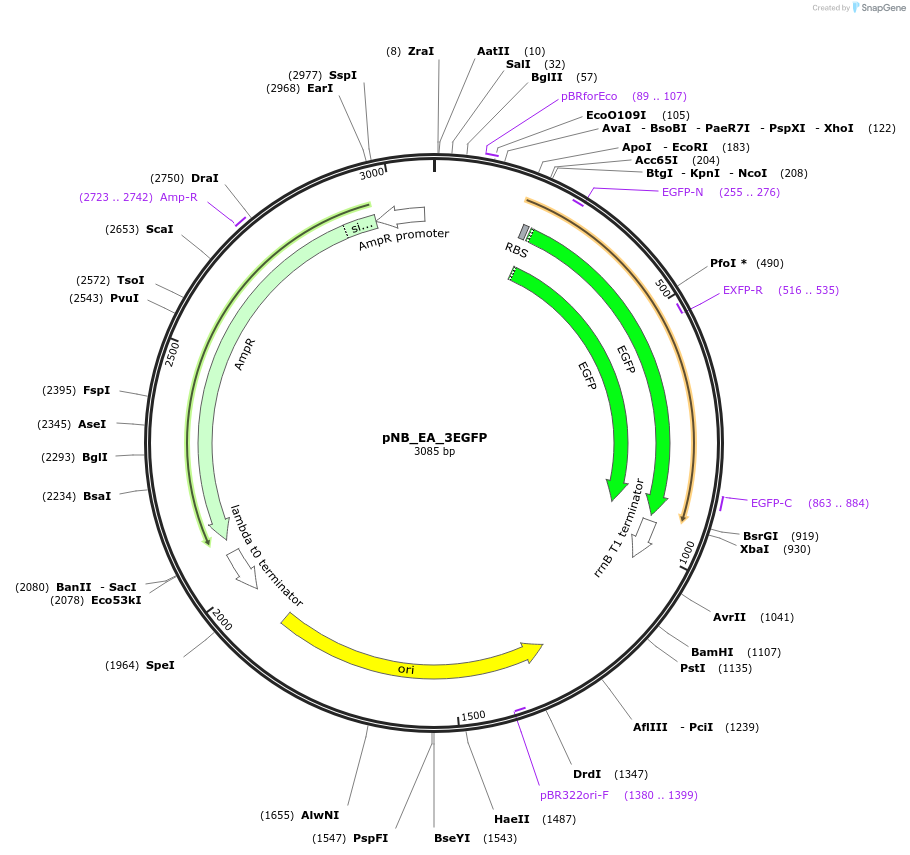pNB_EA_3EGFP
(Plasmid
#185967)
-
PurposeExpresses EGFP from PR promoter in E.coli Dh5alpha cell
-
Depositing Lab
-
Sequence Information
Ordering
| Item | Catalog # | Description | Quantity | Price (USD) | |
|---|---|---|---|---|---|
| Plasmid | 185967 | Standard format: Plasmid sent in bacteria as agar stab | 1 | $89 | |
Backbone
-
Vector backbonePz
-
Backbone manufacturerexpressys.
- Backbone size w/o insert (bp) 1900
- Total vector size (bp) 3085
-
Modifications to backboneInsertion of Pr egfp cassette in forward direction in network brick
-
Vector typeSynthetic Biology
Growth in Bacteria
-
Bacterial Resistance(s)Ampicillin, 100 μg/mL
-
Growth Temperature37°C
-
Growth Strain(s)DH5alpha
-
Copy numberHigh Copy
Gene/Insert
-
Gene/Insert namePr-Egfp cassette in forward direction in Network Brick
-
SpeciesSynthetic
-
Insert Size (bp)1102
- Promoter PR
Cloning Information
- Cloning method Restriction Enzyme
- 5′ cloning site AatII (not destroyed)
- 3′ cloning site PciI (not destroyed)
- 5′ sequencing primer TACTGGGACGAAGACGAACA
- 3′ sequencing primer GTTGTTTTGGAGCACGGAAC
- (Common Sequencing Primers)
Resource Information
-
Supplemental Documents
Terms and Licenses
-
Academic/Nonprofit Terms
-
Industry Terms
- Not Available to Industry
Trademarks:
- Zeocin® is an InvivoGen trademark.
These plasmids were created by your colleagues. Please acknowledge the Principal Investigator, cite the article in which the plasmids were described, and include Addgene in the Materials and Methods of your future publications.
-
For your Materials & Methods section:
pNB_EA_3EGFP was a gift from Sangram Bagh (Addgene plasmid # 185967 ; http://n2t.net/addgene:185967 ; RRID:Addgene_185967) -
For your References section:
Processing two environmental chemical signals with a synthetic genetic IMPLY gate, a 2-input-2-output integrated logic circuit, and a process pipeline to optimize its systems chemistry in Escherichia coli. Mukhopadhyay S, Sarkar K, Srivastava R, Pal A, Bagh S. Biotechnol Bioeng. 2020 May;117(5):1502-1512. doi: 10.1002/bit.27286. Epub 2020 Feb 7. 10.1002/bit.27286 PubMed 31981217







